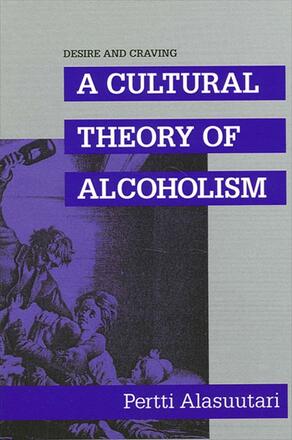
Desire and Craving
A Cultural Theory of Alcoholism
Alternative formats available from:
Description
This book is an ethnographic analysis of alcoholism, focusing on the importance of cultural explanations of heavy drinking in modern society. As a starting point, Alasuutari uses a cognitive concept of frames in order to study the social and cultural boundedness of alcohol related problems. The ethnographic narratives concentrate on specific cases, but stress the theoretical level of analysis, and reveal the ways in which the alcoholism frame is linked with Western culture and society. Alasuutari also provides an analysis of the role of the temperance movement and ideology in Finland, and the rise of the distinction between normal and pathological drinking.
Pertti Alasuutari is Acting Associate Professor of Sociology, University of Tampere, Finland and Editor-in-Chief of Sosiologia (The Finnish Sociology Journal).
Reviews
"This work is an imaginative synthesis drawing on a number of disparate literatures and traditions of analysis. I think anyone who has worried about the disease concept of alcoholism will find much in it to chew over, and many novel insights. The book can be seen as the first book-length consideration of the cultural construction and culture-boundedness of alcoholism concepts, and thus is likely to be referenced for years to come.
"It brings together multiple layers of data and argument in a discussion of a fundamental issue in the nature and development of Western cultures, while also contributing useful material on the phenomenology of a social problem. " — Robin Room, Addiction Research Foundation, Toronto
"The case studies of tavern drinking and the a-guild are the most exciting portions of this book. Dr. Alasuutari's analysis of the way in which a 'logic of freedom' governs the drinking behavior of many Finnish Blue-Collar workers—in which complete freedom from the world of work is attained only by those who are slaves to alcohol—is subtle, extremely insightful, and heartbreaking. The description of the a-guild, with its establishment of an informal 'logic of replacement' and homologous relationship to male drinking groups as defenses against alcohol, is also very illuminating. The author's theoretical discussion of the way in which processes of identity formation influence and can inextricably interweave heavy drinking into one's way of life was very carefully established and revealing. " — Bryan M. Johnstone, University of Kentucky College of Medicine